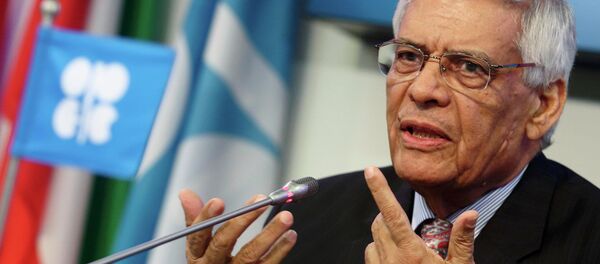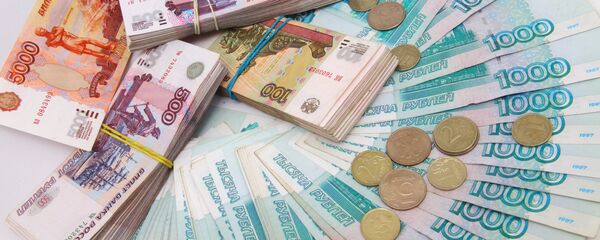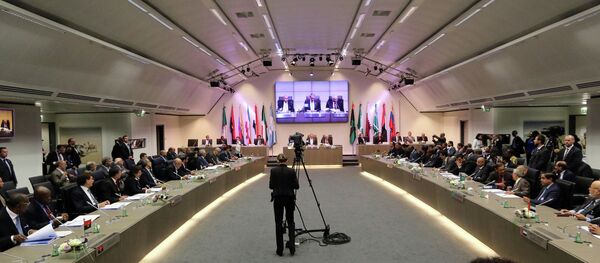Alternatively, lower oil prices are said to be a Saudi plot to throttle the US shale oil and gas industries.
The history of oil prices over the last century shows that the recent fall in oil prices almost certainly has nothing to do with such theories, but is the product of more impersonal factors.
Oil prices are driven primarily by two factors: (1) international supply and demand for oil, which remains the lifeblood of the modern industrial economy, and (2) the value of the dollar, the currency in which oil is priced.
Since dollars buy oil, if the value of the dollar is high against other currencies, then fewer dollars buy more oil even if the cost of oil priced in other currencies remains unchanged. Conversely, if the dollar’s value depreciates, then more dollars are needed to buy the same amount of oil. Oil price fluctuations therefore may not always reflect its cost when priced in other currencies.
Beyond that there are always speculators, whose actions invariably tend to overdramatize changes when price volatility is high. Speculators are, for understandable reasons, unpopular. However, they are a fact of life and their effect in any given situation tends to be short-lived. When stability returns (as it invariably does) it becomes clear that they will have achieved no lasting change on the fundamentals that determine the price.
The result is that when the dollar is strong, the oil price tends to be low. The opposite also holds true. When the dollar is weak, the oil price tends to be high.
It is the interaction between these two factors, namely the balance of supply and demand, and the prevailing position of the dollar, that determines the oil price.
These factors alone suffice in explaining the recent fall in the oil price without having to introduce complicated and unnecessary theories about conspiracies between the Saudis and the Americans, or of a Saudi plot to undermine the US’s shale industry.
A brief review of recent history shows that it is the interaction between these two factors that determines the oil price.
This phase of low oil prices had catalyzed the rapid growth of western economies during this period. Those who believe it was low oil prices in the 1980s that brought about the USSR’s collapse should remember that it was during this same period of low oil prices that the USSR’s economy achieved its longest period of rapid, sustained growth.
Over time rapid economic growth in the west, caused in part by low oil prices, increasingly led demand to outstrip supply. Concurrently, heavy spending in the US to finance the space program, a massive build up of the US’s nuclear forces, Lyndon Johnson’s Great Society program and the Vietnam war, combined with a loose monetary policy by the US Federal Reserve, had caused the internationally traded value of the dollar to depreciate. By the late 1960s, European countries began to insist that the US settle payments in gold and in 1971 the US government was forced to sever the dollar’s link to gold and allow the currency to float freely.
The result was that oil prices suddenly quadrupled in dollar terms, though not against the gold price, against which they simply recovered to their previous level. The event that exacerbated the rise in the dollar price of oil, but which did not cause it, was the oil embargo imposed briefly by the Arab states during the 1973 Arab-Israeli War.
Oil prices remained high in dollar terms throughout the 1970s, a period when supply was tight and the dollar was weak. The high oil price caused economic growth to fall across the industrialized world, at the same time encouraging high investment in new oil fields in places like western Siberia and the North Sea. It also galvanized, especially in Europe, nations to reduce oil dependency by increasing energy efficiency and conservation.
It is this mid-1980s oil price collapse that is popularly believed to have been the result of a plot between the Saudis and the Reagan administration to bring down the USSR. The reality is that the oil price fall had only a marginal effect on the mounting problems the USSR experienced in the late 1980s, whose causes are to be found not in the oil price fall, but in the sharpening political conflicts that were transpiring domestically, and in the poor economic decisions made at that time by the country’s leadership. Nor was the oil price fall the result of some sort of anti-Soviet plot on the part of the Reagan administration and the Saudis. The Saudis’ ability to control oil prices is, as we shall see, always overstated, whilst the tight monetary policy introduced by the US Federal Reserve under Paul Volcker, which caused the value of the dollar to rise and the price of oil to fall, was far from being welcomed by the Reagan administration, which bitterly opposed it.
US monetary policy became looser in the 1980s and early 1990s under Volcker’s successor, Alan Greenspan, causing the dollar to weaken. Oil prices as a result became firmer. There was, however, no surge comparable to the one that had happened in the 1970s, in part because production in Russia ensured that oil remained oversupplied.
Oil prices, nevertheless, experienced a second collapse in 1997 when Greenspan briefly reversed his policy, tightening monetary policy by raising interest rates, causing the value of the dollar to rise. The rise in the dollar in conditions of global oversupply of oil caused another collapse in the oil price in 1997. This in turn led to the Asian Financial Crisis and the collapse of the ruble and Russia’s default the following year.
Subsequently, Greenspan reversed course again. US monetary policy thereafter and under his successor at the Federal Reserve Board, Ben Bernanke, remained extremely loose. At the same time the George W. Bush administration went on a spending spree in part to finance its various wars. As in the 1960s, the flood of dollars caused the dollar to weaken, which it went on doing right up to and beyond the financial crash of 2008.
In the meantime the low oil prices of the late 1980s and 1990s underpinned another period of rapid economic growth, especially in Asia, whilst concurrently causing investment in new oil production to fall. The result was that the balance between supply and demand began to shift from one of oversupply to one of excess demand.
The financial crisis of 2008 briefly caused the dollar to strengthen (as it came to be seen as a safe haven) and demand for oil to fall as economic activity around the world diminished. The result was another collapse in oil prices. The reason they recovered so quickly this time was because the response by the US Federal Reserve to the 2008 financial crash was to loosen monetary policy even more through a combination of near zero interest rates and the so-called “quantitative easing program”. The result was that the brief period of dollar strength that followed the 2008 crash quickly reversed, succeeded by a more prolonged period of dollar weakness. Nonetheless, because of continued economic problems in Europe and the US caused by the aftereffects of the financial crash, oil prices have never recovered to their 2008 level.
This year the wheel has finally turned full circle. The US Federal Reserve Board has tightened monetary policy by belatedly ending its quantitative easing program causing the value of the dollar to rise. High oil prices after 2000 have led to major investment in new oil production particularly in the US, with heavy investment in shale oil and gas production. Depressed economic conditions in Europe and slowing growth in Asia (particularly in Japan and China) have caused demand to fall. The result is another period of simultaneous dollar strength and oil oversupply. The wholly predictable and natural result of this is the fall in the oil price we have seen this autumn.
As it happens it would make no sense for OPEC to cut back production now to support prices. The only effect of such higher oil prices would be to strengthen the surge in shale oil production in the US, which is not a member of OPEC and which would never agree to production cuts. Since the benefit of any OPEC production cut would go not to the members of OPEC, but to US shale producers, who are seen as largely responsible for the present problem of oversupply, OPEC has nothing to gain from it, which is the true reason they have refused to carry one out.
In fact, looked at objectively, OPEC’s role is symbolic rather than real: it gives oil producers the sense that they have some control over the price of their product, even though in reality they do not, whilst giving western commentators and governments a convenient scapegoat to criticize when oil prices are high. When oil prices are low, western commentators can congratulate each other, as they did in the 1960s, the 1990s and as they are doing now, that OPEC has lost its relevance and its power over the oil market, even though on any objective reading it never had any.
Where does this leave Russia?
Firstly, the fact that the recent fall in oil prices is an event that has simple economic causes and which is not the product of some sort of sinister anti-Russian plot hatched by the Americans and the Saudis, should be clearly restated. Relations between Russia and Saudi Arabia are actually strong. Whilst Saudi Arabia and Russia have taken opposing sides in the Syrian conflict, they are allies in Egypt — a far more important country to Saudi Arabia than Syria is — where both Russia and Saudi Arabia are strong supporters of the military government of General Sisi. Both also share similar perspectives on the threat posed by the Islamic State. Moreover, personal relations between President Putin of Russia and King Abdullah of Saudi Arabia are known to be very good, whilst personal relations between King Abdullah of Saudi Arabia and President Obama of the US are said to be rather bad. Saudi Arabia has no obvious reason for wanting to weaken Russia and it is very unlikely to say the least that the Saudis would agree to harm themselves by waging an economic war against Russia simply because Obama and the US wanted them to.
The reality is that Russia can undoubtedly ride out a period of lower oil prices. In fact, such a period is likely to be beneficial in the end.
Russia’s position is also much stronger than in 2008, the time of the last oil shock. Russian companies are in a much better financial position than was the case then. In contrast to the position in 1998 and 2008, Russia has provided itself with the additional cushion of a freely floating currency. The value of the Ruble since the summer has closely tracked the fall in oil prices. The result is that the dollar price of oil today buys roughly the same number of Rubles as it did a year ago. There is little risk therefore of the fall in the oil price causing catastrophic problems for the government’s budget, or for the trade balance as was true in 1998 and in 2008.
This is not, of course, to say that the fall in the oil price, or the fall in the ruble it has caused, has not had negative consequences. For Russians who want to buy or invest abroad, it is now more expensive to do so; Russians will probably have to endure higher prices for a short period.
High oil prices have, however, been for Russia a very mixed blessing. They undoubtedly helped the government after the 1998 crash to sort out the country’s finances. Yet there is a strong case for saying that for Russia oil prices remained too high for too long, causing the ruble to become overvalued in a way that punished domestic producers and encouraged Russians to borrow and invest excessively abroad. A lower ruble, by reversing these trends, should over time strengthen the domestic economy by helping it diversify away from oil and become more self-reliant. There will no doubt be a difficult period as the country and the economy adjusts, but this should be over fairly quickly given the strong fundamental conditions (in particular the absence of debt) and fairly quickly the benefits should come through.
The present period of low oil prices is anyway unlikely to last long. Demand for oil from Asia is likely to grow as Asian economies recover from what is probably only a brief period of weakness. Given the extremely high levels of indebtedness in the US, it is very unlikely the Federal Reserve will be able to sustain monetary tightening for a long time. Most probably the period of dollar strength we are now seeing will be short. Given the US’s declining position in the world economy (it has probably already been overtaken by China) it is debatable for how much longer oil will be priced in dollars anyway. Given the high production costs of many US shale oil producers, it is likely low oil prices will put many of them out of business, causing US oil production to fall, ultimately correcting the present situation of oversupply. Of course there are many who think the Saudis have deliberately engineered the fall in oil prices to achieve that. Whilst that is certainly wrong, the effect is the same. Already there is talk of US banks and investors becoming more cautious about funding new shale projects; even with interest rates still almost at zero the cost of borrowing in the US remains low. If the US Federal Reserve raises interest rates next year, as some expect, then the US shale industry could find itself in crisis.
All the conditions for a future rise in oil prices are therefore already in place. In fact, such a rise is all but inevitable and is probably only a few years away. When it comes Russia, with a stronger, more diversified and self-reliant economy should be in a better position to benefit from it than it is now.
The views expressed in this article are solely those of the author and do not necessarily reflect the official position of Sputnik.

















